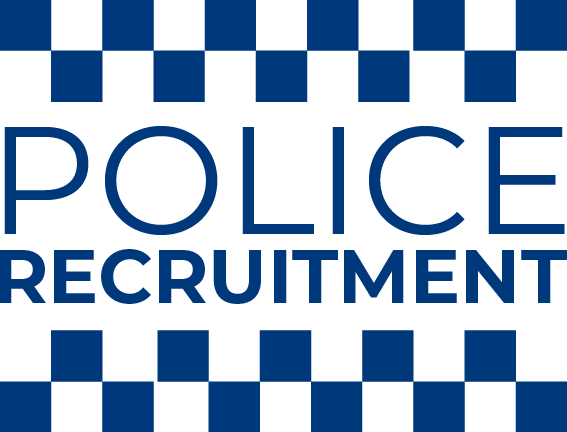Q. What made you decide to apply to become a police officer?
“I have applied to become a police officer because I want to work in a role that will allow me to utilise the diverse range of skills, qualities, and experiences I possess whilst at the same time allowing me to have a positive impact on the people I am serving. Being a people person, I enjoy interacting with others and I have been impressed with the work the local police force carries out in our local community. Having followed the police service for some time now, I decided to read the day-to-day duties and responsibilities of a police officer. I am particularly attracted to the variety the role brings, the fact that the force is constantly changing and evolving to meet its priorities, and the fact I will get to work alongside other like-minded professionals who are all striving to achieve the same goal.”
Q. Why do you want to work for our police service?
“I want to work for this police service primarily because of your commitment to your priorities, which are things that I genuinely believe in. You are not just a reactive service, but a proactive one, too, whose focus is to build strong relationships within the local community. I want to work for your police service because the area is challenging from a risk perspective. Crime in this area is varied, and I will get to use my skills and training as a police officer to help reduce those crimes, and help make the community a safer place. The area is also diverse from a demographic perspective and this will mean I will get to meet with, and work alongside, lots of different and talented people from the community to help our society grow and develop. Because we spend so much time at work, I want to feel as though I am making a difference and developing as an individual in my work. I believe this police service will allow me to achieve those objectives.”
Q. What preparation have you done in the lead up to applying to become a police officer?
“I spent time studying the duties and responsibilities of a police officer, and I thoroughly read the recruitment information to ensure I had the necessary skills, qualities, and beliefs to become a competent police officer. I also spent time studying the police services website, and in particular, I read and made sure I understood the police officer core competencies, the police services priorities, and values. I have been following your police services social media pages and latest news stories to find out what you have been doing in the local community. Finally, I spoke to several serving officers to find out more about the work they do, what it is like being a police officer, and the impact it can have on your personal and social life.”
Q. If you witnessed a member of your team being verbally abused, what would you do?
“I would intervene immediately to stop the abuse before reporting it to my supervising officer. Any form of abuse, harassment or intimidation is not acceptable in any workplace, especially the police service where the public expects its police officers to uphold and demonstrate important values.”
Q. What do you think the main responsibilities of a police officer are?
“As a serving police officer, I will be responsible for many tasks and duties. I will be required to work with my colleagues to detect crime, ad prevent it. This will be achieved by working in line with the criminal justice system, and I will need to work with local communities, police colleagues, other emergency services, the local authority, and stakeholders.
I will be required to use my powers responsibly, appropriately, and proportionately to maintain law and order, to provide a reassuring presence in the community, and to work towards improving and maintaining positive relations with the people I am serving. I will be required to conduct dynamic risk assessments at incidents, gather evidence in line with my training and the police services operational protocols, and interview suspects as and when appropriate.
Other duties and responsibilities include working with local partners to solve challenging problems, share information, and enable all interested parties to achieve the combined goal. I will need to liaise with victims, witnesses, and vulnerable members of society whilst working in accordance with all laws and procedures, including human rights, equal opportunities, and human rights laws.
As a police officer, I will need to conduct robust investigative work, gather intelligence and data and record it appropriately in line with my training. At all times as a police officer, I must support my colleagues, be able to account for my actions, act in a manner that is befitting of a police constable, and adapt to change with a positive mindset and attitude.”
Q. How would your approach differ when interviewing a pregnant female suspect compared to a middle-aged male suspect?
“I would be consistent in my questioning; however, I would appreciate that the pregnant female suspect might be under the additional stress that could harm the unborn child. On that basis, I would utilize a style of communication to suit the situation and I would consider having a female colleague in the interview with me. I would also ensure, whenever interviewing any suspect, I would follow my police officer training and the operational procedures of this police service.”
Q. How will you manage shift work effectively around your personal life?
“I am looking forward to working shifts and having worked in an office environment for several years I would welcome the change. Before applying to become a police officer I discussed the impact of shists with my family and they fully support me. We have already discussed how we would manage me working shifts if I am successful and we have a strong support network in place to help with childcare if needed.”

